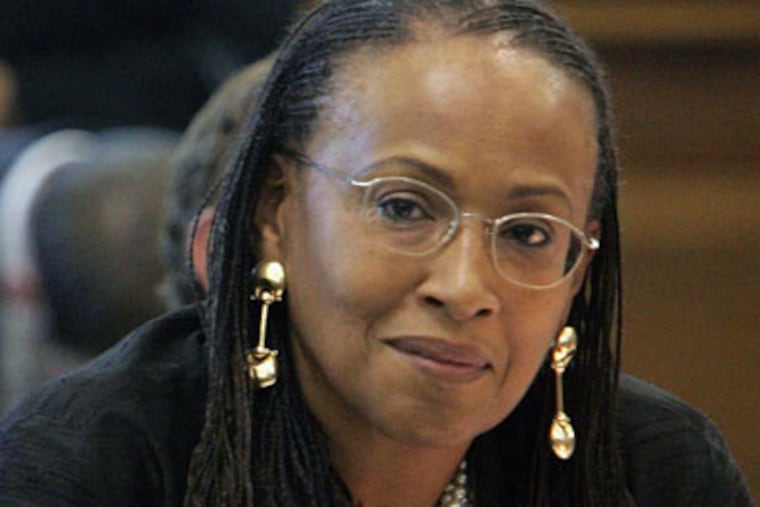Inquirer Editorial: More voting, not less
In the hopes of increasing voter turnout, a New Jersey state senator wants to encourage democracy by opening the polls 15 days before an election. By contrast, Pennsylvania is still stuck in a battle to limit civic engagement with an exclusionary voter-ID law that may be enforced by the courts in future elections.

In the hopes of increasing voter turnout, a New Jersey state senator wants to encourage democracy by opening the polls 15 days before an election. By contrast, Pennsylvania is still stuck in a battle to limit civic engagement with an exclusionary voter-ID law that may be enforced by the courts in future elections.
In mid-December, Commonwealth Judge Robert E. Simpson Jr. is set to revisit his decision upholding Harrisburg's restrictive voter-ID law. Don't think that the law is dead just because he halted its implementation for the Nov. 6 election. The judge stopped its application because he was presented with evidence that the state's onerous law could disenfranchise thousands of voters. Simpson questioned whether the state was capable of getting photo IDs for all the registered voters who needed them.
Beyond that logistical failure, the basic idea behind the law is flawed. Republican state lawmakers said they passed it to prevent voter impersonation, the rarest form of voter fraud. In court documents, the state even admitted that there was no proof of such fraud at the polls.
Any type of voter fraud is repugnant, but Pennsylvania's law doesn't improve the integrity of elections, and it places an unfair burden on those who lack an acceptable form of ID. That group includes those who don't drive, haven't served in the military, don't work for the government, aren't nursing home patients, and don't attend in-state colleges. It means that a disproportionate number of the poor, elderly, and young would have had trouble voting Nov. 6 because they lacked proper IDs.
The motivations behind passage of the law were hinted at in June, when House Majority Leader Mike Turzai (R., Allegheny) proclaimed that voter ID would help Republican presidential candidate Mitt Romney win Pennsylvania. The commonwealth was among a dozen states seeking to enact restrictive voter laws in the runup to the 2012 election.
If Simpson doesn't cast out Pennsylvania's law, the legislature should repeal it.
While they're at it, they should take a look across the Delaware River, where New Jersey State Sen. Nia Gill (D., Essex) is working to help voters exercise their rights. She sponsored an early-voting bill, she said, because "our goal must be to ensure that all voters have an opportunity to have their voices heard."
Under Gill's bill, some polling places would be open for eight hours a day, seven days a week. Early voting would end two days before an election.
The proposal was prompted, in part, by the mess that Superstorm Sandy made across the Garden State leading up to Election Day. Voting was disrupted for many in the storm's path.
Gill's idea to expand voting deserves passage by the Legislature and Gov. Christie's signature. The North Jersey lawmaker's example also deserves attention from Pennsylvania's elected leaders.